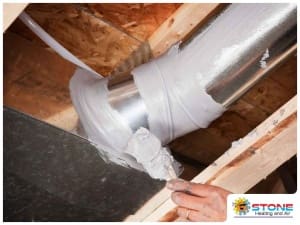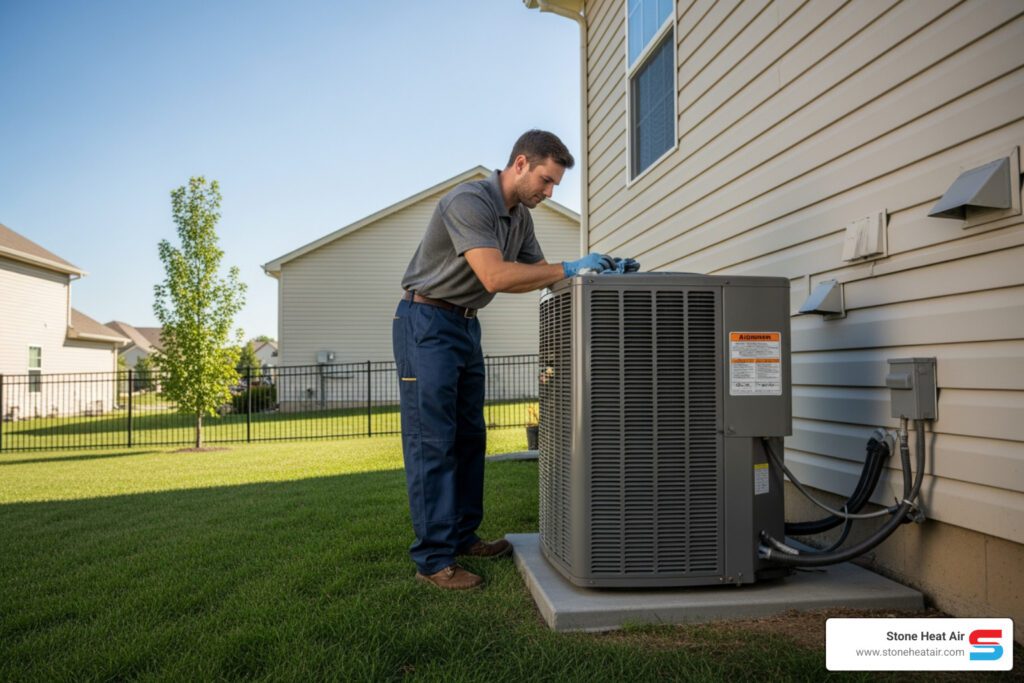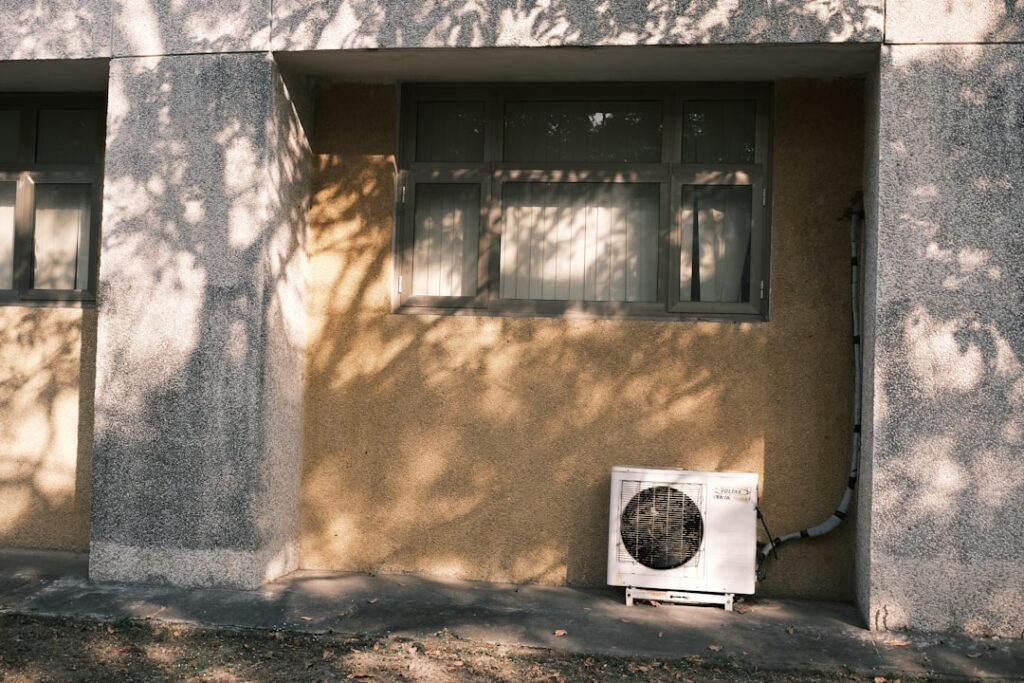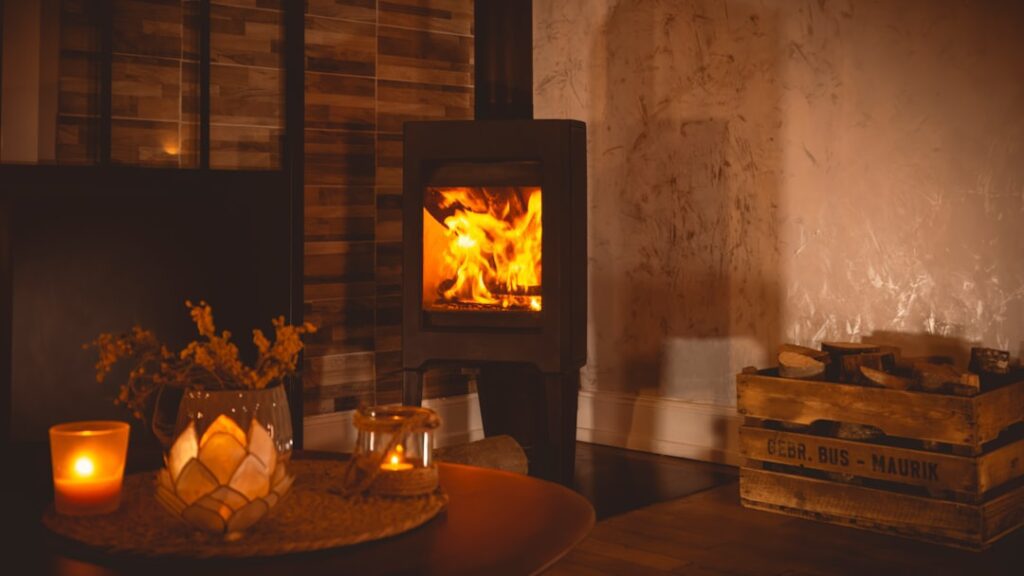Sweating It Out: Condensation in Air Ducts and How to Prevent It
Condensation in air ducts affects the quality of air in your home. Dust, dirt and other debris in your ductwork can exacerbate colds and allergies, as well as asthma. In this post, duct cleaning pros from Stone Heating and Air explain what causes sweaty ductwork and how to prevent it.
Condensation in Air Ducts
The source of accumulated water in air ducts is the air within the home, which contains water vapor. In winter, indoor air usually has more water vapor than outdoor air. When the air cools to a low enough temperature, water vapor condenses into liquid. If the temperature in the duct gets too low, frost and ice will form. Not until the duct warms up and the ice melts will the problem become evident, however.
Problems Associated With Moisture
Dust or dirt in wet ductwork promotes the growth of mold, fungal spores and microbes, which can thrive on all surfaces of the ventilation system. Ask HVAC maintenance companies like Stone Heating and Air to help prevent moisture in your ducts.
Preventing Sweaty Ductwork
Excessive moisture is one of the leading causes of HVAC issues. As a homeowner, you can prevent moisture issues by sealing unused duct systems during the heating season. Closing register dampers won’t be enough, as they’re not airtight and will allow moist indoor air into the ducts.
Sealing Ducts
Sealing duct openings, supplies and returns prevents intrusion of both air and vapor. Remove the register or return grill and tape the duct openings closed. Seal larger openings by taping plastic sheeting over the openings. In areas of high humidity, such as bathrooms and kitchens, ensure complete seals. In less humid areas, sealing the exterior of registers and grills may be enough. Tape and plastic sheeting will keep both air and water vapor out. Your home heating repair company can help in more difficult areas.
Turn to Stone Heating and Air for all your HVAC needs. We offer duct cleaning and sealing to improve your home’s IAQ and energy efficiency. Give us a call at (541) 855-5521 or fill out our contact form for a consultation.
Category: HVAC
Request An Appointment
Related Content



